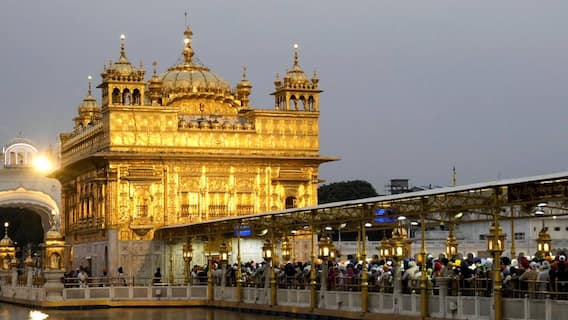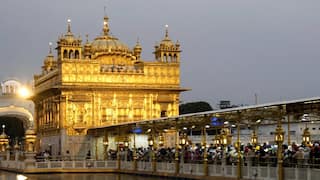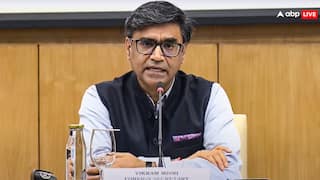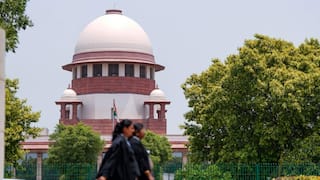From Green Tax To Mandatory Garbage Bag: Himachal HC's Fresh Directions To Tourists, State
In a recent order while dealing with petitions pertaining to environmental degradation and waste management, the Himachal High Court said that all tourists entering the state must carry a large garbage bag

In a recent order while dealing with a batch of petitions pertaining to environmental degradation and waste management, the Himachal Pradesh High Court said that all tourists entering the state must carry a large garbage bag in their vehicles. The top court laid down several directions for state and tourists while highlighting urgent need for improved waste management practices.
The order passed by a bench, comprising Justices Tarlok Singh Chauhan and Sushil Kukreja, said that the Himachal government should take inspiration from Sikkim and learn from Goa's waste management model, which already has a similar mandate for tourists. Following are the other important directions by the Himachal government.
"We are further of the considered view that in order to promote sustainability in all the tourist destinations and to ensure community participation towards achieving this goal, the State should take cue from the Government of Sikkim, in which it has been made mandatory for all tourist vehicles entering the State to carry a large garbage bag in their respective vehicles and the responsibility has been fastened upon the concerned tour operators, travel agencies and vehicle drivers to disseminate the information about the use of garbage bag for waste collection and disposal," the order noted.
Green Tax Utilization Audit
The High Court noted that the state of Himachal already levies a green tax on tourists in certain districts like Kullu, Manali, Sirsu, and Koksar, but there is no audit to monitor how the collected tax is used for waste management.
The High Court directed the concerned authorities to file an affidavit detailing how the collected green tax is spent in the state.
Municipal Waste Management Corporation:
The High Court directed the State to consider establishing a Municipal Waste Management Corporation on the lines of Goa model to manage waste in an efficient manner.
“Since Himachal Pradesh is a tourist destination and major part of its economy depends on the tourist visiting the State, the State could consider evaluating the pros and cons of establishing Municipal Waste Management Corporation on the line of Goa,” the bench noted.
Make Plastic Buyback Policy Fully Functional
The high court also raised the issue of non-functional plastic buyback policy and directed the government to make the plastic buyback policy fully functional for seven days a week so that the citizen especially the rag pickers have an incentive to collect waste lying in streets, jungles and streams etc. which in many cases could become a source of their livelihood from the system itself.
Special Task Forces To Clean Waste Spots
The high court directed the state government of Himachal to form Special Task Forces (STFs) focused on cleaning hillsides, streams, and other waste hotspots.
STFs shall include all stakeholders like members from municipal corporations, State and District Legal Services Authorities, the Tourism Development Corporation, the Forest Department, NGOs, etc.
To Develop Sustainable Trekking Routes
The high court in its directions suggested that the government set up checkpoints to assess the waste carried by tourists on trekking routes.
"a. Establishment of Checkpoints at Entry Gates: Tourist Information Centers: Set up checkpoints at the entry gates of every sensitive and high footfall trekking route. These centers will serve as tourist information hubs, providing guidance on responsible trekking practices, rules, and regulations.
b. Waste Audit and User Fees: Conduct audits of the waste being carried by trekkers and collect user fees that contribute to waste management and environmental conservation efforts.
c. Rescue Operations: Equip checkpoints to handle rescue operations and provide necessary assistance to trekkers in case of emergencies.
d. Dry Waste Storage Facilities: Establish small dry waste storage facilities at the checkpoints. These units will serve as temporary storage for collected waste until it can be transported to central waste management facilities," the order listed.
Tourist Infrastructure & Eco-Friendly Toilets
The high court proposed establishing tourist information centers and eco-friendly toilets. It further directed establishment of standard operating procedures (SOPs) for adventure companies, local guides, and camp owners to ensure proper waste disposal and maintain cleanliness and sustainability.
Sewage Discharge in Rivers
The high court said that the authorities must stop sewage discharge into the river Chandrabhaga at Sirsoo, Tandi, Keylong, Jispa, and Udaipur.
Top Headlines





































